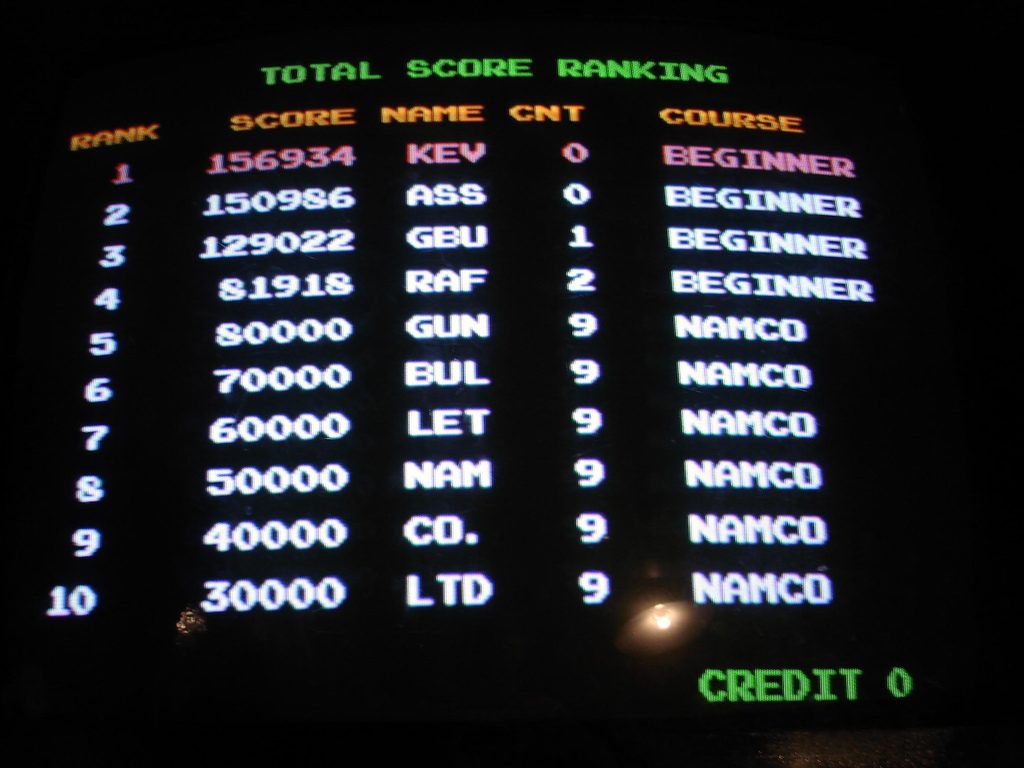Many people love the thrill of a leaderboard. Scoring systems have been around since the early days of arcade gaming, and you can still find them in many kinds of games. That feature has already led to some Guinness records, as well as some controversy, during its history. However, learning how to develop a scoring system for a game can come in handy on many fronts.
While not every game nowadays has a scoring system, the ones that do have can have a very dedicated fan base. They are very common in arcade and rhythm games, from simple mobile games like Candy Crush to top-of-the-line games like Dance Dance Revolution and indie arcade games like Beat Saber.
Creating a scoring system may look simple: you just assign numbers to actions and then sum it all up in the end. While that may be sufficient for a casual game, there are ways to make it more interesting and make players look forward to watching the numbers go up. Today, let’s see how you can do that the right way.
Don’t miss: How much to become an Android game developer?
What is a scoring system in games?
A scoring system in games is a game mechanic used by game developers to track the progress of the players. It helps to measure the learning, performance, and reward of the players in a game.

Different scoring mechanics might be needed to create an overall enjoyable experience for the players. These can also help motivate them to continue playing and provide them with a sense of accomplishment when they reach certain goals or make it on a leaderboard.
Scoring systems allow players to compare their progress with other players and challenge themselves to constantly improve in order to score better. Game developers must come up with an efficient scoring system if they want their players to have an enjoyable experience while playing their games.
How to develop a scoring system for a game: a short guide
Like with aspects of game design, creating a score system is all about balance. You don’t want to make it frustrating to get points, but you don’t really want players to have an easy way to inflate their ratings. All of this should be baked into the design of your scoring system, so think well about it!
Numbers and weights
When people think of high scores, they normally think of numbers. However, you should be thinking about weights. That is: what should weigh more in a score, and what should weigh less?
If you’re adding a high score system, many people will be guided by it in their gameplay to maximize their score. That means that they’ll look into doing things that make their score get bigger and get bigger more quickly. The more, the merrier!
So, think about what want you to steer the player to do. Do you want them to go after challenges? So make that have a greater score. Do you want them to try new things? Reward them with scores when they do that. That kind of thing.
However, as there can be a wide variety of things to do in a game, you also need to know how they’ll interact with one another.

For example, you’ll probably want a less challenging action to give a lower score than a more challenging one. However, how many of those actions are available? If doing a large amount of less challenging actions gives more scores than doing a few more challenging ones, then the path to raise the score is pretty clear, and it’s not the one you wanted.
People will be looking for the path of the least energy to raise their scores high and quickly, so you should watch out for those pitfalls if you want to steer the players towards a certain path.
Avoiding cheaters
If you’re looking into making a scoring system, you may also be looking into making a leaderboard. Nowadays, it can be pretty easy to make a global one, as Steam already gives you the ability to easily host a leaderboard for Steam players, for example.
The thing is, having a scoring system and a leaderboard brings in more competitive players. And more competitiveness can also bring in cheaters, who are looking to boast about the numbers they got while not putting in the required effort.
Cheating is pretty much as old as gaming itself (remember GameShark and Cheat Engine?), and, as you may expect, can be quite hard to stop.
How you’re going to deal with it depends highly on the game engine and the kind of game you’re making, as well as the technical skills you have available, so we don’t really have solid advice on this.
Still, it’s something to keep on the back of your mind and look into later on, so your players don’t end up having a frustrating experience trying to surpass the cheaters’ “high scores”.
Read also: Mobile puzzle games – a quick analysis
Numerical limits
This is a more technical matter, but it’s also something that you should keep in mind.
When thinking about adding numbers and creating high scores, it’s important to remember that variables in programming languages usually have limits. That is, they have a maximum number they can reach, and if they go above it, weird things can happen.
For example, if you are used to C or C++, you might be using the type “int” everywhere. While it’s the usual type for an integer, it can only hold values up to 2,147,483,647 (that is, 2^31-1). If it goes higher than that, it loops around and becomes negative! Not a great experience for a player looking to maximize their score.

You could also make it an unsigned int, meaning it’s only positive. That would make it go to 4,294,967,295, roughly double, which is not much either. And if it goes beyond that, it loops around to 0.
You might want to consider using a 64-bit unsigned integer, that way it goes up to about 18 quintillions (18 x 10^19). That gives a lot more room for a high score, doesn’t it?
Still, that doesn’t mean it’s unreachable. Whether it will overflow or not depends a lot on your scoring system. So, if you notice playtesters are raising it quickly, you might want to tone it down a bit.
Also, very wide numbers may be a bit hard to print on screen too. That number can reach up to 19 characters, not counting separators. It might be hard to fit that into a UI, so keep that in mind too.
We can make your dream game from the ground up – you just need to ask!
Now you know how to develop a scoring system for a game – but why don’t you let us think about the scoring system for you instead?
Here at Main Leaf, we specialize in making other people’s dream games. Do you want the perfect game for you to topple the high scores? We can do that!
Head to our main page and get a quote! This way, we can get to work on making it. We’re an experienced game studio, and we can bring your dream game to life.

